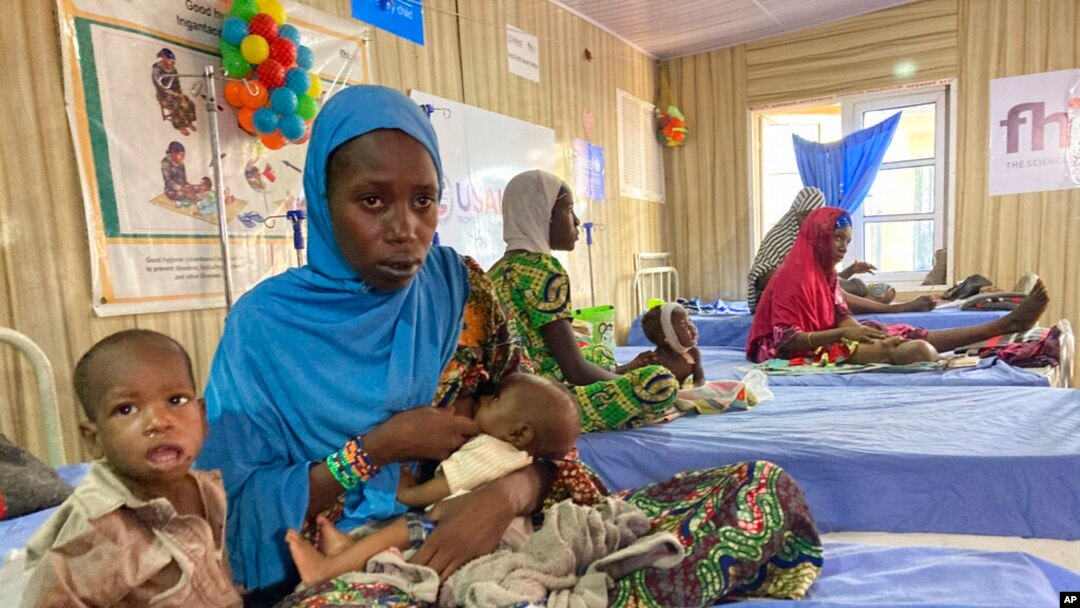The French medical aid group Doctors Without Borders reported a jump in cases of malnourished Nigerian children at its Maiduguri nutrition center in the country's northeast.
The group, known by its French abbreviation MSF, said in a press release July 1 it had recorded an unprecedented influx of malnourished children in its treatment centers between May and June — the highest levels since commencing its project in northeastern Nigeria five years ago.
MSF said it had admitted 2,140 malnourished children this year — about 50 percent higher than cases treated the year before.
MSF said a third of the children were from displaced families barely getting by.
The group warned that cases could worsen between July and September — the so-called lean season, usually when the highest cases of malnourished children are reported every year.
MSF called for immediate action to reverse the negative trends.
"Why we're saying this now is that this year we have been seeing very early, even when we're not in the lean season," said Htet Aung Kyi, MSF's Nigerian coordinator. "And that's why we'd like to call for urgent upscale of activities to prevent the future deterioration of the situation in the area."
MSF responded to the increased malnutrition by extending the capacity of its treatment center from 120 beds to 200 beds.
MSF said its outpatient therapeutic feeding program has also seen a 25 percent increase in enrollment compared with last year.
A camp secretary of the Kawar Maila camp in Borno state, Bukar Bukar, said aid hardly gets to them these days, despite increasing numbers of children suffering from malnutrition there.
"In our camp, they've already withdrawn giving the food, that is the reason that the children have malnutrition. Last year we got food, we got everything. One piece of the milk is 700 Naira, we don't even make that when we go to the market to sell our farm produce. Even last week some people went farming and Boko Haram killed two or three of them," the secretary said.
For years, malnutrition has been a concern in the conflict-affected Borno state, but trends have been exacerbated by the cumulative impacts of insecurity, displacement, a recent surge in food prices, poverty and lack of access to health care.
"The current ability to respond to that is fairly robust," said Peter Hawkins, UNICEF's Nigeria country director. "Insecurity incidences of where capacity might be compromised makes that response mechanism very fragile. We're concerned that our ability to be able to respond to acute malnutrition — if it is compromised — the situation could deteriorate very quickly."
MSF said Nigeria needs not only to increase intervention and medical response but also to address other health issues such as measles, cholera and disease outbreaks that could affect children and worsen the situation.


